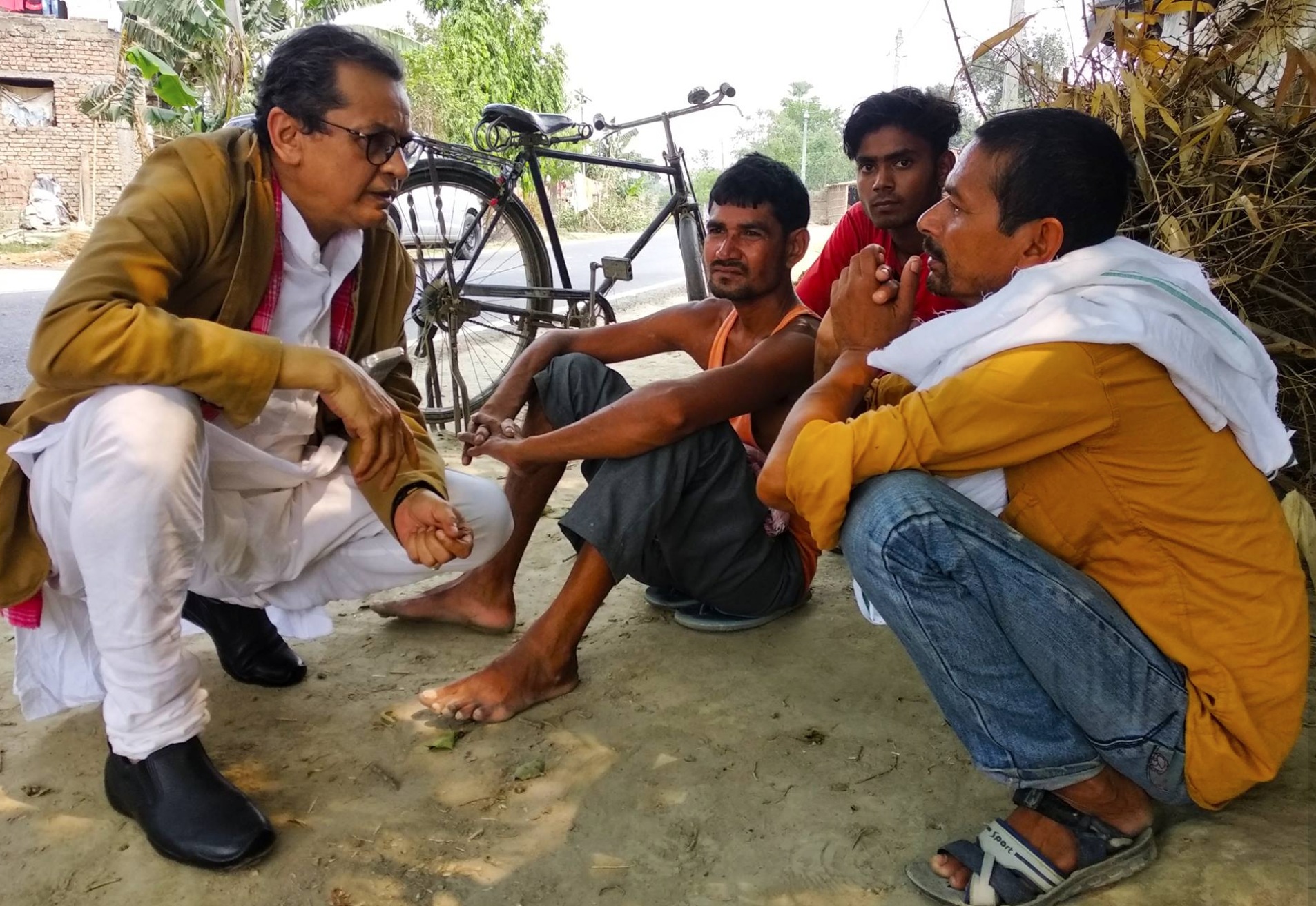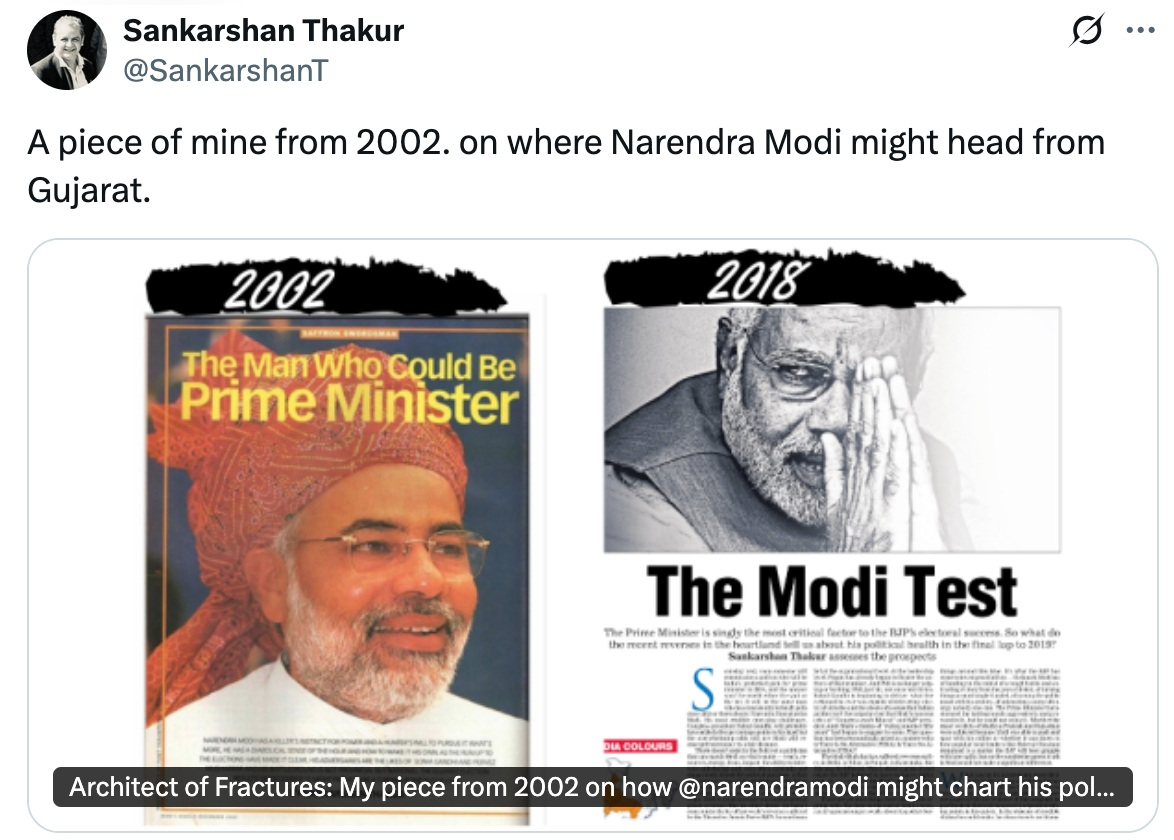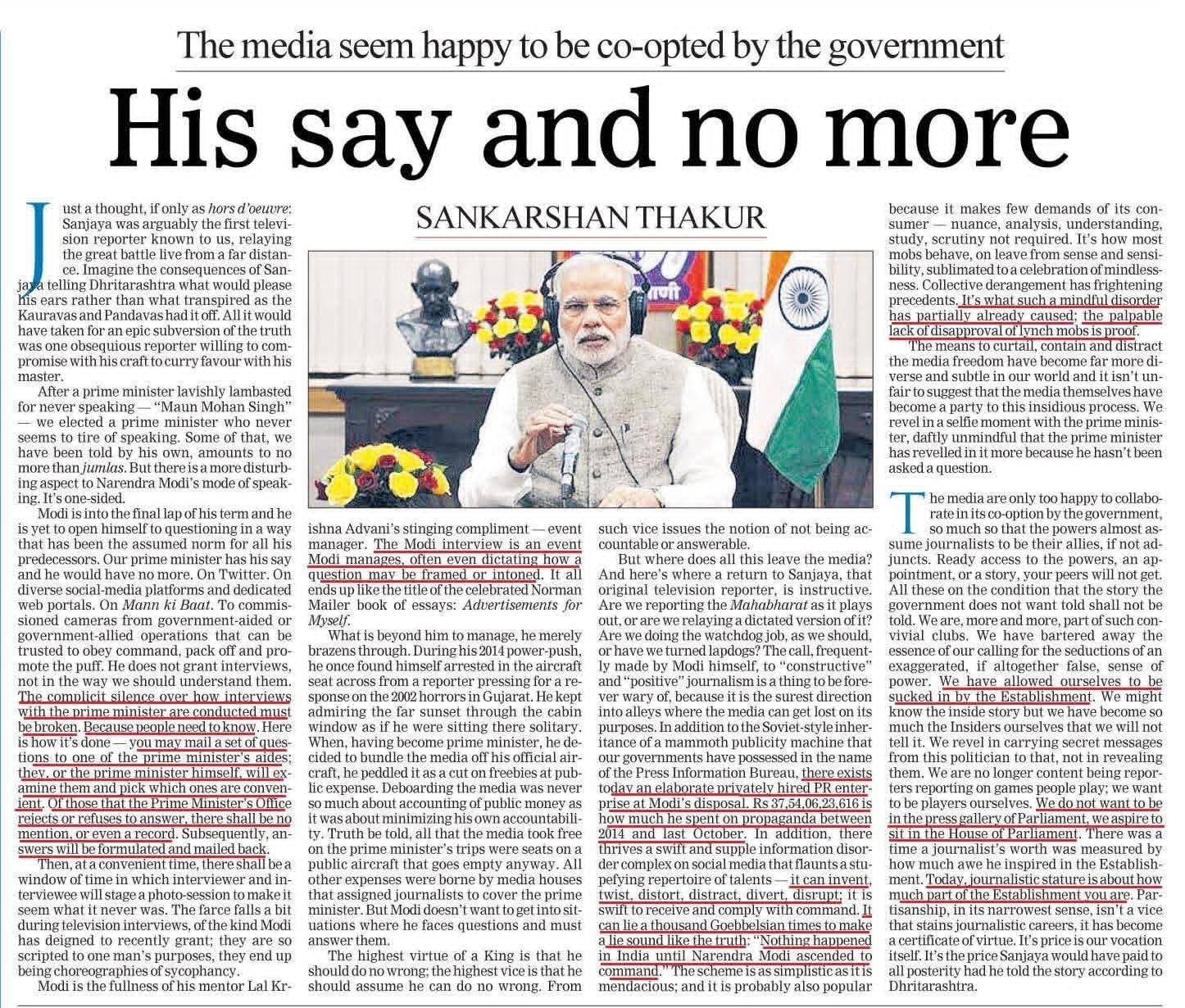Sankarshan Thakur: Generosity and Principles That Defined Journalism
Veteran journalist Sankarshan Thakur leaves behind courage, lyricism, and truth. A collar-up man, he redefined journalism with spine.

Author: Saurav Kumar
Published: September 10, 2025
A quiet lamp has gone out, and yet its glow will not fade. On the morning of September 8, 2025, veteran journalist Sankarshan Thakur passed away, sending shockwaves through India’s socio-political circles and leaving the fraternity of journalists devastated. The news felt unreal. For a few moments, I was numbed, unable to grasp the scale of this loss.
Advertisement
It was a tweet by RJD Rajya Sabha MP Prof. Manoj Kumar Jha that tore through the silence of disbelief: “A quiet lamp has gone out, and yet its glow will not fade. RIP @SankarshanT. India has lost one of its finest chroniclers of truth, courage, and complexity.”
My own plan to meet him in Delhi lay shattered in seconds. I could not process it, yet I had to accept the painful truth. My bond with Sankarshan Thakur was not an ordinary association but a pivotal chapter of my life. It began on June 16, 2016, when I wrote to him seeking help to reach Bihar’s Chief Minister Nitish Kumar about the appalling state of Patna Medical College and Hospital (PMCH). His reply changed my life:
Advertisement
“Dear Saurav. Your enterprise cannot, and in my view, should not, be a contact-based quest. The best way to do this, if you wish to make a serious and meaningful inquiry, is to go to PMCH, take a tour, talk to patients, relations, doctors and staff, and reach your own research conclusions. Any contact I may suggest will merely taint your effort.”
In those lines lay the essence of his journalism: trust your eyes and ears on the ground, sift the facts, and puncture rhetoric with truth.
Advertisement
I became a journalist because of Sankarshan Thakur—my mentor, guide, and father-like figure. His words shaped my path: “There’s no sanctity greater than facts gathered from the ground.” That one lesson pulled me away from life sciences and towards the living pulse of people.
My first step was a seven-day ground report on PMCH’s crumbling infrastructure, published in Youth Ki Awaaz. From there began my journey into journalism—rooted in Bihar, carried across India, enriched by stories of struggles and truths.
Field Reporter to Editor
Sankarshan Thakur’s journey in journalism began at the grassroots—as a field reporter—and rose through the ranks to roving editor and eventually Editor at The Telegraph. He often described the profession with a mix of candour and humour: “One of the greatest gifts of journalism is that it allows one to see the world on someone else’s money.”
His reportorial legacy was nothing short of epic. He chronicled the coup in Maldives, the war in Sri Lanka, the mujahideen takeover of Kabul, and the fraught borderlands of Turkey and Syria. He bore witness to the Bhopal gas tragedy, the assassination of Indira Gandhi, and the complex churns of Bihar and Jammu and Kashmir. Yet, among all these, it was his coverage of the Kargil war that he often described as his most memorable and defining assignment.
I myself saw his magic unfold during the Lok Sabha elections of 2019 in Bihar, our home state. Here was the veteran roving editor of The Telegraph walking through villages and towns like a first-time field reporter, listening intently to people and sensing their political pulse. His vintage collar-up blazer draped over a white kurta, and the red gamchha slung across his shoulder, captured his Bihari-Pana—the subaltern spirit of Bihar he carried with pride. In that moment, he was both reporter and editor, embodying the rare duality of sharp analysis and ground intimacy.

Image: Sankarshan Thakur interacting with locals of Samastipur Lok Sabha Constituency during 2019 elections.
My own reportorial streak since 2017, especially in Bihar and Jammu and Kashmir, is nothing but a spark lit by him. His political journalism set an unconquerable benchmark in India—whether in the precision of his analysis of Bihar’s 2015 Assembly elections or in his prophetic reading of Narendra Modi’s calculated rise from Gujarat in 2002 to India’s power centre as Prime Minister.
That foresight still lives on in his words. His pinned tweet, written back in 2002, remains an immortal testimony to his clarity of vision on the man who would go on to shape India’s politics for decades.

Image: The pinned tweet of Sankarshan Thakur on Narendra Modi’s Prime Ministership way back in 2002.
Critical of Mainstream Media
For Sankarshan Thakur, journalism was never meant to be comfortable. He often reminded us: “Journalism is an adversarial profession. The job is to critically test and question power. Instead, the watchdog has deteriorated into a lapdog.” Few were as unsparing as he was about the mainstream media’s drift—from challenging authority to cosying up to it. His biting observation, “Today, journalistic stature is about how much part of the Establishment you are,” remains a damning reflection of our times.

Image: Sankarshan Thakur’s write up on media and government
He will be remembered, revered, and recalled for his courage to call out power. Yet Thakur was more than a critic—he was a craftsman of words. His reportage carried a lyrical elegance that turned fact into living image: the charged air of a Bihar election rally, the silences of Kashmir, the everyday theatre of Indian politics. His writing did not just inform—it transported emotions.
And now, the gut-wrenching truth confronts us: the collar-up man is no more. With his passing, Indian journalism has lost a rare generosity of spirit and an unyielding fidelity to principles. What remains is his light—his insistence that truth be sought in the dust, in the streets, and in the voices of the people. It is that light which will continue to guide us.
[Disclaimer: The views expressed in this article are those of the author and do not necessarily reflect the editorial stance of this publication.]
No comments yet.
